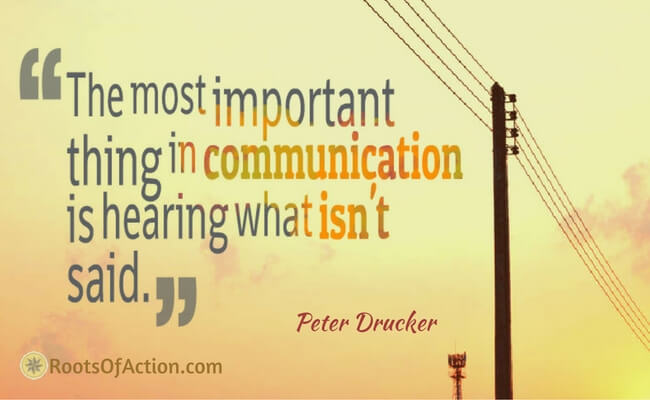
Back-to-school is always a time when parents and teachers revisit what is important for children and how to best support their positive development.
This popular list of back-to-school articles, started in 2012, has been updated for the 2024-25 school year. Most articles bring you the latest thinking and research on learning, achievement, family well-being, parent engagement, neurodiversity and special needs children, youth sports, media, technology, discipline, bullying, and adolescent mental health —topics parents think about at back-to-school time.
The articles in this list are selected because they support the development of core abilities every child needs — curiosity, sociability, resilience, self-awareness, integrity, resourcefulness, creativity, and empathy. (The Compass Advantage) For big picture thinking about child development at back-to-school time, check out the series for parents: Successful Kids Need 8 Core Abilities: How to Parent with Purpose. Also download our free and popular Parenting Promise at Roots of Action [in English and Spanish] and a handout on the Compass Advantage framework, showing how parents and schools impact these eight core abilities in youth.
Our online Compass Surveys for youth and adults continue to be completed by thousands of students and parents. These surveys, part of a research project on lifelong wellbeing, help parents and children self-assess the eight core abilities and guides adults on how to nurture them in children and teens. Read our article, Human Development is Fundamental to Thriving, for the research on these core abilities. We’re happy to announce that our research study, Factors Associated with Life Satisfaction in Adolescents, will be published in the Winter 2024 edition of the School Community Journal.
Browse back-to-school articles below that pique your interest and bookmark others for later. The newer articles are always at the beginning of each section. Many remain on this list for several years because they are true gems. If you like the authors, be sure to follow them on social media.
In recent years, many excellent articles we’ve recommended have changed their access to subscription-only. Regrettably, we have eliminated those articles from our list, including the New York Times and The Atlantic to ensure free access to all. I guarantee you will find some meaningful food for thought here – whether it is back-to-school time or anytime! You will also meet some great people who support children’s positive development and well-being. Happy reading!
Back-to-School Basics: Learning & Achievement
My Teaching Philosophy: An Intimate Reflection, by Miguel Angel Escotet, Ph.D. An important must-read reflection on education for parents and teachers. How can each of us play a role in evolving towards a society for learning? Twitter
New Strategies to Grow Caring Children & Compassionate Citizens, by Marilyn Price-Mitchell, PhD. at Roots of Action. Get new at-home/classroom tools from CosmoKidz that facilitate children’s social learning through meaningful conversations between adults and children. Twitter; Facebook
Practical Assessment Tips for Tutoring Struggling Readers by J. Richard Gentry, PhD. at Psychology Today. Learn how adults can use five quick assessments to survey foundational reading skills that children may be missing. Facebook; Twitter
Optimal Child Development: 20 Tips for Parents by Joanne Foster, EdD at The Creativity Post. Back to school or working remotely, these guidelines are paramount to children’s learning and success. Twitter; Facebook
Curiosity: The Meta-Skill to Thrive in the 21st Century, by Gustavo Razzetti at Psychology Today. Your child’s ability to learn is key to today’s success. How do you develop a learning mindset? Twitter; Facebook
Why We Still Need to Study the Humanities in a STEM World by Valerie Strauss at The Washington Post. How humanities make us examine the entirety of the human condition and the complex moral issues of our time. Twitter
Family Well-Being
Do Children Change Our Behavior? by Melissa Hogenboom at BBC Parenting. Learn how children’s behaviors and personalities influence parents’ lives and how those behaviors affect how we parent them. Twitter
Here’s What Makes “Positive Parenting” Different—and Why Experts Say It’s One of the Best Parenting Styles, by Amy McCready at CNBC. Learn five ways to practice positive parenting, a style of parenting that supports kids’ emotional development through positive interactions. Facebook; Twitter
What It’s Like to Raise a Child in a New Family by Sophie Hardach at BBC Parenting. Surrogacy, LGBTQ+ parents, older couples, and single people are changing traditional notions of family. What are the joys and challenges? Twitter
The No. 1 Skill That Sets Mentally Strong Kids Apart from “Those Who Give up” —and How Parents Can Teach It, by Michele Borba, Ed.D. at CNBC. Learn nine science-backed ways to help kids maintain hope, especially during tough times. Twitter; Facebook
Pandemic Parenting by clinical psychologist Cara Goodwin, PhD, at Psychology Today. Parenting during a pandemic has been stressful for many. Recent research found that parents who gave their children more autonomy showed improved family well-being.
Family Meetings Can Be Fun, Productive, and Meaningful, by Marilyn Price-Mitchell PhD., at Roots of Action. Back-to-school is a great time to start having family meetings! Learn why meetings are beneficial and how to run them. Twitter; Facebook
Have you Mastered the Tricky Art of Parental Pressure? by Susan Newman Ph.D., at Psychology Today. Parents who want the best for their kids may unintentionally pressure them in the wrong places, in the wrong ways, and at the wrong times. Twitter; Facebook
We Treat Others as We Have Been Treated by Jessie Stern, PhD and Rachel Samson at Psychology Today. Learn why a parent’s interpersonal strengths, such as kindness, love, and social intelligence, matter most for nurturing these same strengths in children. Twitter; Facebook
The Unspoken Wedge Between Parents and Grandparents by Robin Marantz Henig at The Atlantic. Each generation has its own norms for parenting. Arguing over the differences can be an emotional minefield. Twitter
Developing Emotional Intelligence Through Children’s Songs by Nancy Kopman at Roots of Action. Singing songs about feelings can expand children’s emotional awareness. Twitter; Facebook
Quotes for Kids That Promote Healthy Development by Marilyn Price-Mitchell, Ph.D., at Roots of Action. Learn how quotes can inspire your kids! Twitter; Facebook
When You Don’t Like Your Child’s Friend, by Eileen Kennedy-Moore, Ph.D., at Psychology Today. Why forbidding a child’s friendship with a peer probably won’t work. What to do instead. Twitter; Facebook
The Key to Success in Within Your Child’s Developing Mind by Michele Borba, Ed.D., at Roots of Action. What is the “special sauce” for raising kids? Twitter; Facebook
Back-to-School Parent Engagement
Family Engagement: A Two-Way Partnership, by Marilyn Price-Mitchell, Ph.D. at Roots of Action. What is family engagement, what makes it a partnership, and why it matters to student success? Twitter; Facebook
Positive Parenting During a Pandemic by Kirsten Bradbury, Ph.D., at Psychology Today. How to meet children’s developmental needs for positivity during this challenging back-to-school year. Twitter
How Parent Involvement Leads to Student Success, published at Waterford.org. What is parent engagement and why is it important? Facebook; Twitter
Twenty Ways You Can Help Your Children Succeed at School by Colorin Colorado. An excellent list in English and Spanish for successful parent engagement. Facebook; Twitter
The Unique Power of Afterschool Learning by Leah Levy at Edudemic. Learn how afterschool programs impacts child development and what to look for in programs that “get it right.” Twitter
Child Anxiety | Body Image
How to Help When Your Child Is Anxious About Going Back-to-School, by Leah Campbell, at PsychCentral. School anxiety is not at all uncommon. How can parents help? Facebook; Twitter
Social Anxiety in Children: The 3 C’s to Growth by Rick Ackerly, M.Ed., at Roots of Action. Why social anxiety is part of the human condition and how to help your kids. Twitter; Facebook
Body Image and Girls: 8 Ways to Help Our Daughters Thrive in a Thin-is-in World by Robyn Silverman, Ph.D., at DrRobynSilverman.com. Helping girls thrive means breaking some well-established habits. Facebook; Twitter
How to Help Kids with Social Anxiety by Katie Hurley, LCSW, at Psycom. Effective coping strategies parents can teach their child at back-to-school time and beyond. Twitter; Facebook
Answers to FAQ’s About Anxiety in Children and Adolescents by Signe Whitson, L.S.W., at Psychology Today. How to recognize the symptoms and teach kids skills for calming their brains. Twitter; Facebook
Neurodiversity, Special Needs, Trauma, ADHD, etc.
Understanding and Supporting Neurodiversity in the Classroom by Ray Christner, Psy.D., at Psychology Today. Neurodiversity challenges the traditional view of neurological differences as deficits. Facebook
How Kids Develop Thinking and Learning Skills by Amanda Morin, special education teacher, at Understood. Learn how neural pathways work and how to build these pathways in children.
Throw Out Everything You Assumed About Parenthood by Deborah Reber at ADDitude. Magazine. This is article five of a 5-part series on how shifts in daily perspectives can help parents embrace and support their child’s neurodiversity. Facebook
Supporting Behaviorally Challenged and Neurodivergent Students in Education and Special Education, by Mona Delahooke, PhD, at monadelahooke.com. When disruptive behaviors increase, learn why we should first ask if we are meeting and supporting the child’s emotional and/or physical needs. Facebook; Twitter
How Do I Parent My Adolescent with Special Needs? by Liz Mathels PhD, at Psychology Today. Parents may be tempted to make life as easy as possible for a child, but some amount of struggle will help them. Communication is key. Facebook; Twitter
Underachievers, Part 2: One More Key Reason Kids Who Could Do Well In School Don’t by Valerie Strauss in The Washington Post. Do you have a gifted child with learning disabilities? Learn why bright students often struggle in school. Twitter
When Trauma Underlies Challenging Behaviors: New Answers for Vulnerable Children by Mona Delahooke, Ph.D., at MonaDelahooke.com. Sometimes aggressive behaviors are signs of early trauma. Learn why it is important to understand the roots of challenging behaviors. Facebook; Twitter
Stress Relief for Families with ADHD: The Value of Mindfulness by Mark Bertin, M.D., at Roots of Action. Parenting a child with ADHD is demanding. Learn how to relieve stress. Twitter; Facebook
Youth Sports: Back-to-School and Beyond
Helping Young Athletes Build Connection and Confidence by Patrick Cohn, Ph.D. at Ultimate Sports Parent. Learn to have intentional conversations with children that lower stress and performance anxiety. Instagram
The Psychology of Coaching Your Own Child in Sports, by Frank L. Smoll PhD, at Psychology Today. Coaching your own child can be a great opportunity to spend time together but also presents some unique challenges for parent and child.
What’s Right About Youth Sports in America by Jim Taylor, Ph.D. at Psychology Today. While many criticize the evolution of sports and a focus on winning at all costs, this article takes a peak at the upside of sports for kids. Twitter; Facebook
How to be a Positive and Winning Youth Sports Coach by Jennifer Fraser, Ph.D., at Roots of Action. 8 ways a sports coach can positively influence athletes. Facebook; Twitter
Bullying
Three Things Parents Should Do If a Child is Being Cyberbullied by Tristan Gorrindo, M.D. at The Clay Center for Young Healthy Minds. Twitter
Why Shaming Teens or Kids Shouldn’t Be Part of Parenting, by Sue Scheff at Psychology Today. New evidence suggests that adolescent bullying may have origins in the home. Parents who are hostile and punitive may be at risk of raising teens who bully others. Twitter; Facebook
Mean Girls: Why Teenage Girls Can Be So Cruel by Chris Hudson at Understanding Teenagers. Learn how gender influences adolescent behavior in friendship groups and why girls have a natural tendency toward social aggression. Twitter; Facebook
How to Protect Kids from Cyber-Bullying by Michele Borba, Ed.D., How to keep an electronic leash on your child! Twitter; Facebook
Media & Technology
How to Be a Good Parent in the Era of Social Media, by Mark Travers, Ph.D., at Psychology Today. New research sheds light on how parents can navigate the world of adolescent social media usage. LinkedIn
Gaming Disorder: Is It a Real Illness? by Eugene Beresin, M.D., M.A. at Psychology Today. It is rare, but gaming disorder can be a problem for youth. Learn how parents can help. Twitter
Help! My Teen is Sexting! By Sue Scheff at Family Online Safety Institute. Learn five ways parents can handle teen sexting. Twitter; Facebook
Singing the Digital Blues by Dr. Judith Schlesinger at The Creativity Post. The author suggests that the polar opposite of creativity is digital passivity. How does this affect you and your children?
Discipline
Four Boundaries Children Need to Understand by Sara Au at Psychology Today. Discipline involves many areas of parenting, including personal boundaries, interactions with others, and sexual consent. Learn how to have these conversations with your children. Twitter; Facebook
The Spanking Debate is Over by Noam Shpancer, Ph.D. at Psychology Today. The scientific debate on spanking children has been resolved. Learn what the research says.
How to Change Your Child’s Behavior — Without Yelling, Threats or Consequences by Laura Markham, Ph.D., at Peaceful Parent Happy Kids. Research shows that punishing kids creates more misbehavior. What can you do to guide your children without punishment? Twitter; Facebook
Child & Adolescent Mental Health
Teens, Tech and Mental Health, by parenting advocate, Sue Scheff. Recognize the three common causes of teenage mental health concerns and get resources to help your teen. Twitter; Facebook
The Top 13 Reasons Why Kids Have Mental Health Problems by Marilyn Wedge, PhD, at Psychology Today. Learn why parents arguing in front of kids is the number one cause of children’s psychological problems. Facebook; Twitter
How Parental Substance Abuse Affects Children, by David J. Bredehoft PhD, at Psychology Today. A high percentage of children living with an addicted parent will experience mental health issues. Learn why.
Preventing Teen Substance Abuse, by clinical psychologist Joseph Nowinski PhD at Psychology Today. Is there a connection between boredom and teen substance abuse? Where does parenting fit in?
This back-to-school article is republished and updated with new articles each year at RootsOfAction.com. Copyright 2012-2023 by Marilyn Price-Mitchell Ph.D. Please see reprint guidelines.
Related Articles You May Enjoy
Published: August 22, 2024
Tags: back-to-school, bullying, character strengths, critical thinking, cyberbullying, discipline, education, empathy, Family-School Partnerships, gratitude, happiness, homework, internal rewards, learning, media, mentoring, moral development, neuroscience, parent engagement, parent involvement, parenting, positive values, positive youth development, praise, Sports, stress, teachers, technology





